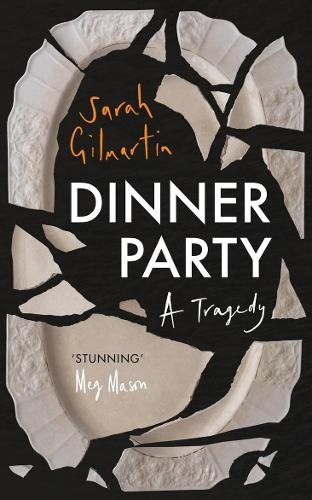Family get-togethers are inherently dramatic as they are often accompanied by so much expectation, pent-up emotions and long-held grievances. They often start out with the best intentions but can spiral out of control into feuds. There's an intense familiarity yet often family members can feel like strangers to each other. This is something Sarah Gilmartin understands well as her debut novel begins and ends with a dinner to mark the anniversary of a death in the family. In between these dinners we learn about the history of the Gleesons, a contemporary Irish family of farmers with two sons and twin daughters. The story focuses on daughter Kate as she struggles to reconcile with family tragedies, emotionally connect with the family members who remain and progress forward in her own life. It's an engaging story with many moments of high tension and heartache because it's clear that these people care deeply about each other but also drive each other crazy.
The routines of family life: games of charade and cards can explode into warfare especially as the matriarch has an emotionally volatile sensibility where suddenly hellfire is released into the living room. She's domineering, highly critical and very concerned about how the family appears to the rest of the community. There's an inherent comedy in the fact that Kate frequently zones out or tries to keep reading a book as the mother is speaking to her and thinks about other things only to realise she's expected to respond and must quickly piece together what was being talked about. Yet, she's also a bridge-builder in the family trying to stop arguments before something is said which will be regretted. At the same time she harbours her own secrets and perilously avoids discussing emotions which are constraining her potential. Ominously, she counts how many bites of food she eats and we see her lack of control manifests into a longstanding eating disorder. She also has an affair with a married man which doesn't give her the emotional satisfaction or security she needs. This leads to another memorably disastrous dinner with her lover where she gets horrifically drunk. This scene is so cleverly written because we understand just how messy things become from the reactions of people around her.
I felt like I grew to know each family member intimately by the end of the book and understand their point of view. Gilmartin skilfully conjures the physicality of her characters while showing their bond to each other with lines such as “He had a similar skin to herself, the kind that flashed up feelings to the world.” At the same time there are many sharp observations which speak more widely to the psychological and social effects of significant events. Though death is a much-discussed and ritualized occurrence in Ireland it's also like a marker which taints the surviving family members: “Death depressed people, and it changed their opinion of you.” The mother vigorously engages in gossip about local people who've died or experience serious illness, but when it occurs within her own family it puts her in an unbearable position within the community. Gilmartin shows how this sense of status and self-image don't matter at all in one sense but in another matter a great deal. The tension of this is movingly played out to show how the bonds of family can both strengthen and destroy us.








